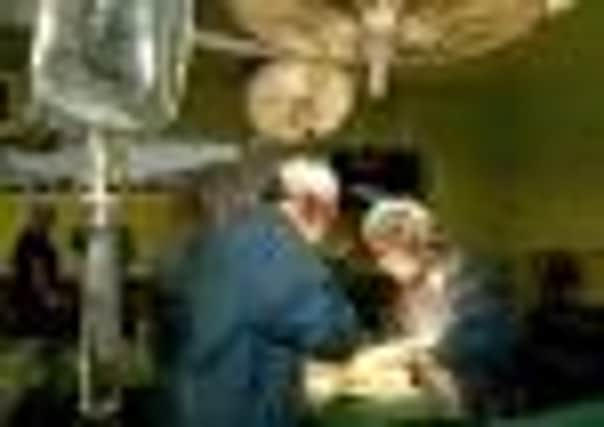Gareth Edwards: Donor law change is a matter of life and death


For many people, signing up to the organ donors register is an act which they take willingly and gladly, in the knowledge that after they die their vital organs could be used to help others in desperate need.
Anyone who has known a family going through the agonising wait for a viable organ will understand only too well just what a simple signature can mean to the lives of others.
Advertisement
Hide AdAdvertisement
Hide AdSo it might come as shock to those who have signed up to learn that even that might not be enough.
Currently four out of every ten potential organ donors – including many on the register – are unable to save lives when they die due to the objections of relatives, who can veto the move. Transplant teams never take organs or tissues against a family’s wishes – even if a person carried a donor card.
Now calls have been made to change the system in Scotland to one of presumed consent, meaning unless a person has opted out of being an organ donor their health organs can be used by surgical teams.
The Scottish Parliament will discuss a call this week for a change to the law in a motion put forward by Paisley-born SNP MSP Kenneth Gibson, which recommends a switch to a system of presumed consent.
Advertisement
Hide AdAdvertisement
Hide AdIt comes after the Welsh government published legislation last month to introduce the UK’s first opt-out donation system. The law is scheduled to come into force in 2015.
So should we follow suit? Or is there a less drastic way to improve the number of people becoming viable donors.
The latest figures published on Monday show that more than 40 per cent of Scots have joined the register, the highest percentage in the UK.
And there have been moves from both the medical profession and the Scottish Government to encourage donors to discuss it with their family, to ensure their wishes are carried out after they die.
Advertisement
Hide AdAdvertisement
Hide AdA recent poll found that 86 per cent of Scots believe donors should have the final say, with only seven per cent thinking relatives should be able to prevent the donation.
Kevin Rooney, a consultant at Paisley’s Royal Alexandra Hospital, said: “Perhaps this is an indication that there is public support for a change in the law around authorisation for organ donation. We respect a patient’s wish for all other forms of consent, so why should organ donation be different?”
The British Medical Association and the Royal College of Surgeons are among the bodies which have backed a system of presumed consent, and while it welcomed an increase in the number of people signed up to the register this week, the BMA said still more needs to be done.
BMA Scottish council chair Brian Keighley said that a change to a “soft opt-out” donation system was needed.
Advertisement
Hide AdAdvertisement
Hide AdThis would mean that organ donation was the default position, unless people had specifically opted out.
Dr Keighley said: “Given the exceptionally high level of support for donation, this is simply making it easier for people to achieve their wish to donate.”
But is presumed consent the best way forward? Another plan being considered by the NHS is to ask patients when they are admitted to hospital whether they wished to donate organs.
This would not help with the issue of relatives blocking any donation, and research published by the NHS Blood and Transplant authority in the summer suggested half of those who wished to donate organs hadn’t told family or friends.
Advertisement
Hide AdAdvertisement
Hide AdJames Neuberger, NHSBT’s associate medical director, said: “We have to reassure people that the role of any healthcare professional is to save and improve life. We have got to work very hard to maintain trust so that people have confidence that if they go into hospital that they will be there to get treated and cured if possible, and that donation is considered only when it is the right time.”
Donors’ wishes were paramount, said Neuberger. “The key issue is that if somebody has indicated clearly they wish to be an organ donor at their death and their family are really very, very distressed and upset, then clinicians are faced with a difficult dilemma,” he said.
“You want to respect the wishes of the donor but, in some circumstances, it is usually unanticipated, sudden death, you don’t want to add unduly to the distress of the family. So there has to be some flexibility on this. The key thing is for the potential donor to let their families know so they are prepared.”